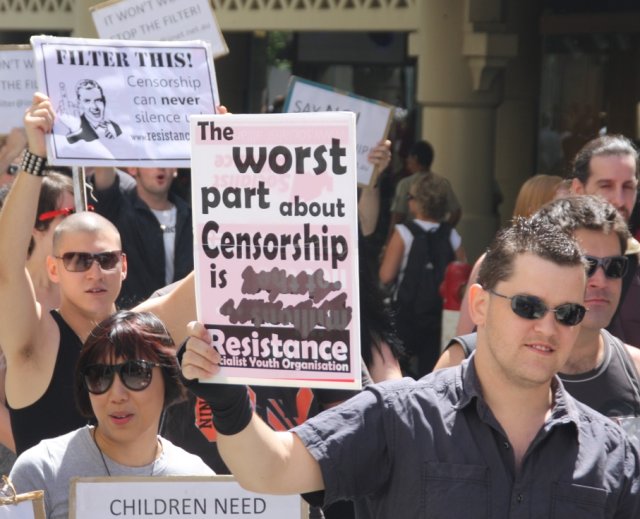
The Labor Party has backed federal government legislation that will, in some circumstances, force Australian internet service providers (ISPs) to block their customers from accessing certain online services.
Labor and Coalition senators passed the Copyright Amendment (Online Infringement) Bill 2015 on June 22, with the Greens and a number of other cross-bench senators voting against the legislation.
The new regime will allow movie studios, music publishers and other rights holders to apply for Federal Court injunctions that will compel ISPs to block their customers from accessing named "online locations" that infringe or "facilitate an infringement of" their copyright.
The expansive language of the legislation has drawn criticism from consumer advocacy groups such as Choice and internet freedom activists, such as Electronic Frontiers Australia.
In its submission to a Senate inquiry into the legislation, the NSW Council of Civil Liberties argued that "website blocking should not be undertaken in a society which cherishes the right to free speech".
"The internet is a manifestation of free speech and has thrived due to the open exchange of ideas and innovations across the world ... Censorship is an unnecessary restriction on freedom of speech and violates Article 19 of the International Covenant on Civil and Political Rights," the group's submission argued.
The scheme introduced by the legislation will also apply to overseas-based online services.
One concern with the legislation is that it contains incentives for ISPs to not oppose website blocks —they will not have to pay court costs unless they oppose a right holder's application — and the operators of overseas-based online services are unlikely to be represented in court.
This means court orders blocking access to online services are in many cases not likely to be opposed.
During Senate debate on the bill, Greens Senator Scott Ludlam said the bill "has scope creep ... built into it".
"Does anybody seriously believe that this scheme won't be expanded in the future to cover more categories of content?" Ludlam said.
Although advocates of the bill have said the aim is to shut down Pirate Bay-style websites, opponents have said that it could potentially apply to a far wider range of services.
For example, it could apply to virtual private network (VPN) services that are used to counter “geoblocking” — where companies charge different amounts for online goods and services depending on where a purchaser is located — or cloud storage and file-sharing services such as Megaupload.
"Blocking cloud storage sites would be a large impediment to citizens looking to share legal material online and constitute a violation of freedom of expression," the NSW Council of Civil Liberties argued.
Earlier this year a parliamentary inquiry conducted by Coalition and Labor MPs rejected calls to rein in the use of section 313 of the Telecommunications Act 1997 to censor websites.
Section 313 has been used by government agencies to issue notices to ISPs instructing them to block access to websites alleged to be associated with illegal activities.
Its use as a censorship power shot to prominence after the Australian Securities and Investments Commission issued a notice to ISPs asking them to block access to certain IP addresses linked to websites engaged in fraud.
However, the IP addresses were also used to host a number of other websites. As a result, access to some 250,000 unrelated sites were blocked for customers of ISPs that obeyed the section 313 notice.
Like the article? Subscribe to Green Left now! You can also like us on Facebook and follow us on Twitter.